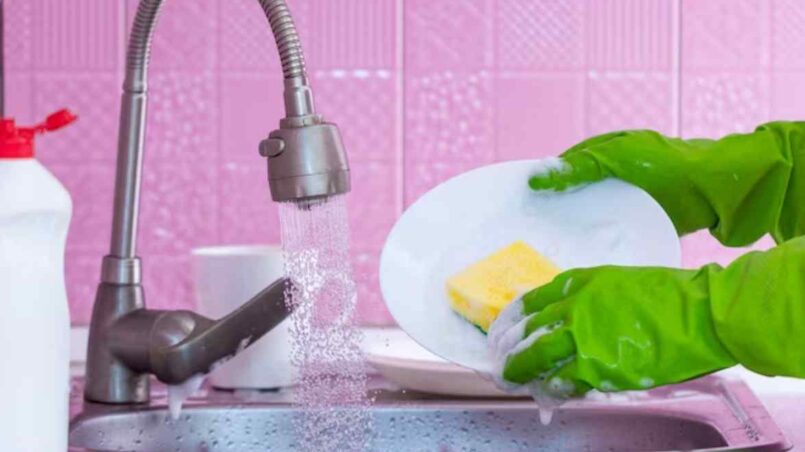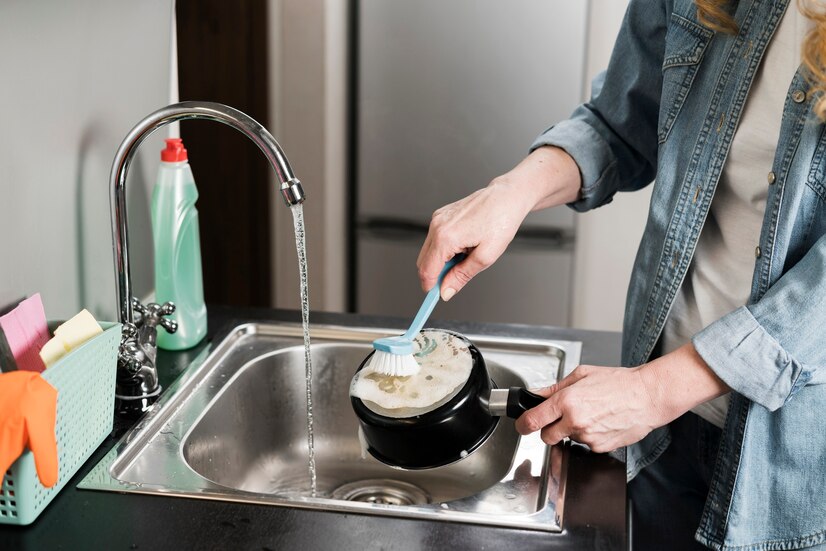Maintaining proper hygiene in your kitchen is crucial, and one often overlooked aspect is the cleanliness of your dishwashing sink. How often should you drain and refill it? This question might seem simple, but the answer depends on several factors. Let’s delve into this how often should the dishwashing sink be drained and refilled? And understand the best practices to keep your dishwashing sink in top-notch condition.
Understanding the Factors
Several factors influence how frequently you should drain and refill your dishwashing sink. Consider the following aspects:
1. Frequency of Use
The more you use your dishwashing sink, the quicker the water quality deteriorates. If you run a bustling restaurant or a busy household, daily drainage and refilling are essential.
2. Types of Dishes Washed
Dishes come in various materials and degrees of greasiness. Greasy and oily dishes can quickly contaminate the water. If you are planning to store heavy equipment or large vehicles, a custom-built garage can be a great option. If your sink often handles such items, frequent drainage is necessary.
3. Quality of Water
The quality of your water supply matters. Hard water, common in many areas, can leave mineral deposits in your sink and on your dishes. These deposits not only affect the cleanliness of your dishes but also influence how often you should change the water.
Signs It’s Time to Drain and Refill
Now that we’ve discussed the factors, let’s identify the signs indicating it’s time to drain and refill your dishwashing sink:
1. Murky Water
If the water in your sink appears dirty or cloudy, it’s a clear sign that it needs changing. This is especially pertinent if you’ve been washing greasy or oily dishes, as these substances can quickly cloud the water.
2. Food Particles
The presence of food particles is a red flag. These particles can be a breeding ground for bacteria. Drain the sink if you notice bits of food floating around.
3. Foul Odor
A strong, unpleasant odor emanating from your sink is a definite indication that the water has gone bad. Odors are often caused by bacteria or other microorganisms in the water.
4. Hard Water Deposits
If you notice mineral deposits on your dishes or in your sink, it’s a sign that your water is hard. These deposits make it harder to clean your dishes and indicate the need for more frequent water changes.
How to Properly Drain and Refill Your Sink
When you’ve determined that it’s time to change the water, follow these steps for proper drainage and refilling:
- Remove the Stopper: Take out the sink stopper to allow the water to drain out completely.
- Rinse the Sink: After the water has drained, rinse the sink thoroughly with clean water. This helps remove any residual food particles or soap.
- Refill with Fresh Water: Fill the sink with fresh, clean water. For enhanced cleaning, you can add a few drops of dish soap. This not only cleans your dishes better but also keeps the sink smelling fresh.
Conclusion
Maintaining a clean dishwashing sink is vital for your kitchen’s hygiene. By being aware of the factors that influence water quality and recognizing the signs indicating the need for a change, you can ensure your dishes are cleaned effectively. Regularly draining and refilling your sink keeps bacteria at bay, ensuring the health and safety of everyone using your kitchen.
FAQs
Q1: How does hard water affect my dishwashing sink?
A1: Hard water contains minerals that can leave deposits on your dishes and in your sink, making it necessary to drain and refill your sink more often.
Q2: Can I use any dish soap to clean my dishes?
A2: It’s best to use a mild dish soap that is specifically designed for handwashing dishes. Avoid using harsh detergents, as they can damage your dishes and the environment.
Q3: How often should I clean the sink stopper?
A3: Clean the sink stopper at least once a week to prevent the buildup of food particles and bacteria.
Q4: What should I do if my sink continues to smell bad even after draining and refilling?
A4: If odors persist, consider using a mixture of baking soda and vinegar to clean the sink and neutralize odors. If the problem persists, consult a plumber.
Q5: Is it necessary to rinse dishes before placing them in the dishwasher?
A5: While modern dishwashers are designed to handle food residue, it’s a good practice to scrape off large food particles before loading dishes into the dishwasher. This prevents clogs and ensures cleaner dishes.















